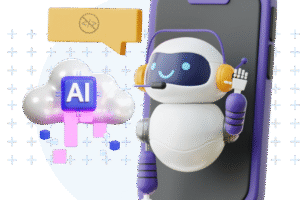After entering the online gaming industry which is growing at a rapid pace, every iGaming entrepreneur has to make a critical decision: choosing between white-label and custom iGaming software solutions. Although both models help launch a gaming platform, they have significant differences in terms of development time, cost, control, scalability, and long-term value.
Today, let’s understand white-label solutions vs custom-built iGaming platforms to help you make an informed decision for your business goals, budget, and operational needs.
What is White Label iGaming Software?
White-label iGaming software is a pre-built, ready-to-launch solution offered by a third-party developer. It involves important features including game content, payment processing, licensing support, backend management, and customer service systems. As businesses choose white-label iGaming solutions, they can launch quickly with minimal setup, getting a chance to focus on branding and marketing properly.
How the White-Label iGaming Solution Works?
A white-label provider offers the complete branding of the platform with the company’s identity, considering logo, domain, and interface design. It also manages the core infrastructure that ultimately helps operators avoid the complexities of building a platform from scratch.
What is Custom iGaming Software?
Unlike white-label options, custom platforms are built from scratch to meet the exact specifications in terms of features, user interface, performance, and integrations. Although custom iGaming software consumes significant time and resources, it delivers unmatched flexibility and long-term ownership.
Full Control and Customisation
A custom platform fits the brand’s unique needs completely. Whether UI/UX or backend mechanics, the operators can introduce unique features, personalise user experiences, and integrate with any third-party service easily.
Ownership and Scalability
With the custom iGaming software, the operators get the advantage of complete ownership including intellectual property rights. They have the freedom to scale, modify, or optimise the system without dependency on an external provider. This approach lays a strong foundation for operators looking for long-term growth and innovation.
Key Differences Between White-Label and Custom iGaming Software
While both custom and white-label software serve the same end goal, both have different paths of execution to run an online gaming platform. They can be differentiated from each other in important areas including time, cost, flexibility, and operational control.
Time-to-Market
White-label platforms require just a few weeks for a complete launch, making them ideal for quick market entry whereas custom platforms require several months to develop, test, and deploy from scratch.
Cost and Investment
White-label iGaming software is less expensive to start with but often comes with recurring fees or revenue-sharing agreements with the provider. Whereas custom software requires a higher upfront investment, it can be more cost-efficient in the long run as it removes licensing costs and offers full revenue ownership.
Operational Responsibility
For businesses without a technical team, a white-label provider handles maintenance, updates, and security. On the other hand, custom software puts the whole responsibility on the operator. They need to hire in-house developers or dedicated support from a tech partner.
Who Should Choose White-Label and Custom Gaming Software?
White-label platforms are helpful for startups, entrepreneurs, and traditional gaming businesses who are looking to expand online rapidly. With these solutions, they get a fast launch with low upfront costs and minimal operational complexity. They are ideal while testing new markets or product concepts while limiting significant financial risk.
For brands with clear growth plans, niche market strategies, and aiming to lead with innovation, custom software offers more control, enhanced scalability, and complete independence from third-party providers. It also provides unique features including integration with emerging technologies of Blockchain or VR and stability to expand across multiple jurisdictions with different regulations.
Combining White Label and Custom iGaming Solutions
Today, a growing number of operators are turning towards a hybrid approach. To access quick market entry and gain momentum early, they start with a white-label iGaming solution. After this, as the user base expands and revenue grows, they migrate to a custom platform. This combined approach minimises potential risks and lays the foundation for the future scalability and the brand’s ultimate innovation.
This approach is helpful for companies looking to validate their product idea first. As performance and market demand increase, they reinvest profits into building a platform that reflects unique Identity and business needs.
Conclusion
Choosing between custom and white-label iGaming software depends entirely on the business model, resources, and long-term goals. For brands that value speed, simplicity, and low initial cost, white label is the way to go.
But for businesses looking to build a brand for the future and in need of full control over every aspect of the platform, it’s important to invest in a custom solution that will pay dividends over time.
As per my research, At Betfoc, we help iGaming businesses choose and build the right solution, whether a ready-to-launch white label platform or a fully custom iGaming software personalised to the unique goals of the brand.



